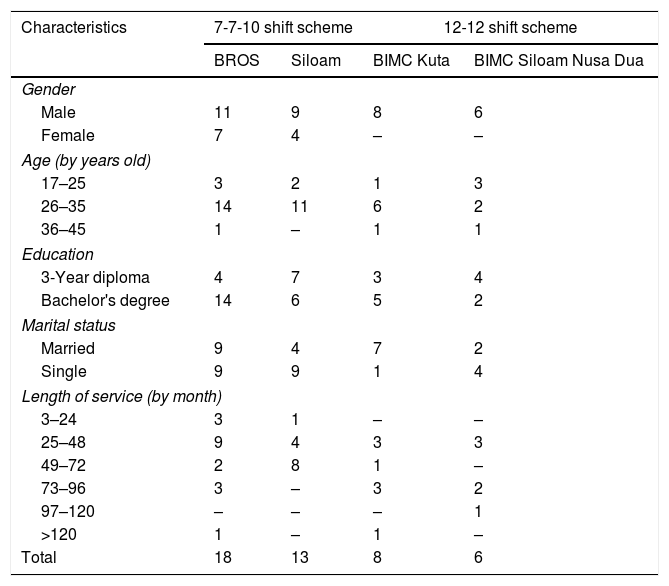Emergency Department (ED) nurses are medical professionals who work in a shift-work system. The implementation of shift work will affect the level of work-related fatigue and stress in ED nurses, which eventually affects their working performance, service quality, and the implementation of patient safety at the emergency department. Based on a preliminary study conducted in Badung Regency and Denpasar City, it was revealed that there were other shift schemes beside the 6-6-12 shift, namely the 7-7-10 shift and 12-12 shift. There has been no research conducted to evaluate work-related fatigue and stress in ED nurses working under those schemes. The aim of this research was to identify the different levels of work-related fatigue and stress in ED nurses working under the 7-7-10 and 12-12 shift schemes at the hospitals in Badung and Denpasar. This research was a quantitative study using an analytical-observational design with a cross-sectional approach. The sampling technique used was purposive sampling, with a sample of 45 nurses taken from four EDs of the hospitals in Badung Regency and Denpasar City. The data were collected by means of the OFER and ENSS questionnaires, which had been translated into Indonesian and tested for their validity and reliability. A statistical test showed that there was a significant difference in the effect of the shift-work schemes on nurses’ work-related fatigue (p=0.012), but there was no meaningful difference in the effect of the schemes on their work-related stress (p=0.267). It was revealed that there was a difference in the influence of shift work on work-related fatigue, but there was no significant difference in the work-related stress level between the nurses working under those shifts.
Artículo
Comprando el artículo el PDF del mismo podrá ser descargado
Precio 19,34 €
Comprar ahora









